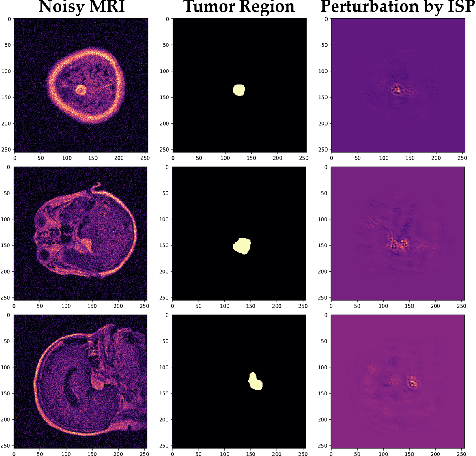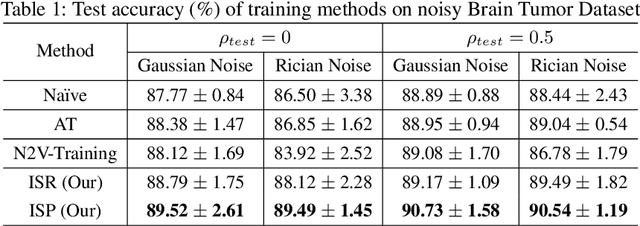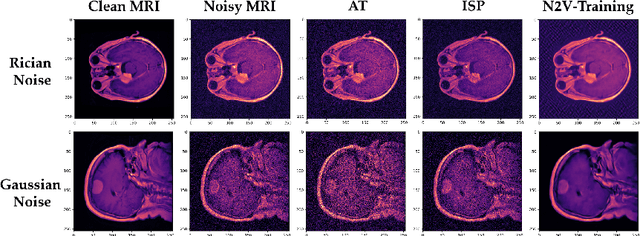Robust Influence-based Training Methods for Noisy Brain MRI
Paper and Code
Mar 15, 2024


Correctly classifying brain tumors is imperative to the prompt and accurate treatment of a patient. While several classification algorithms based on classical image processing or deep learning methods have been proposed to rapidly classify tumors in MR images, most assume the unrealistic setting of noise-free training data. In this work, we study a difficult but realistic setting of training a deep learning model on noisy MR images to classify brain tumors. We propose two training methods that are robust to noisy MRI training data, Influence-based Sample Reweighing (ISR) and Influence-based Sample Perturbation (ISP), which are based on influence functions from robust statistics. Using the influence functions, in ISR, we adaptively reweigh training examples according to how helpful/harmful they are to the training process, while in ISP, we craft and inject helpful perturbation proportional to the influence score. Both ISR and ISP harden the classification model against noisy training data without significantly affecting the generalization ability of the model on test data. We conduct empirical evaluations over a common brain tumor dataset and compare ISR and ISP to three baselines. Our empirical results show that ISR and ISP can efficiently train deep learning models robust against noisy training data.
 Add to Chrome
Add to Chrome Add to Firefox
Add to Firefox Add to Edge
Add to Edge